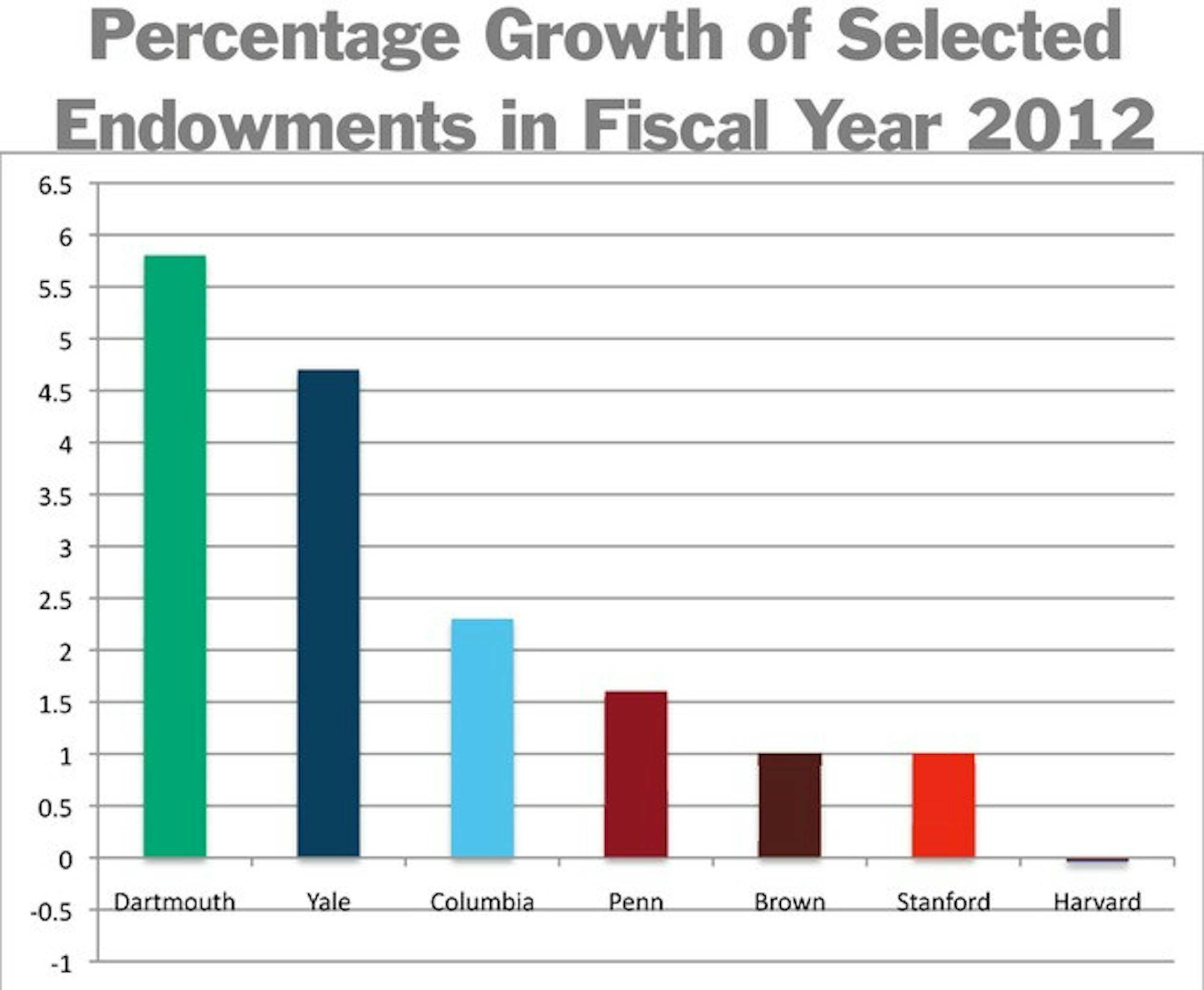The endowment currently funds approximately 20 percent of Dartmouth's annual operating budget. Programs supported by the endowment include financial aid, in addition to academic, athletic, research, recreational and cultural programs, according to the press release.
"We are pleased by the endowment's performance, particularly given the modest global market returns and high volatility in fiscal year 2012 reflecting significant uncertainty and risk in the macroeconomic environment," Dartmouth Chief Investment Officer Pamela Peedin '89 Tu'98 said in the release. "The portfolio benefited from the strong performance of our U.S. equities strategies, as well as its allocation to private capital strategies, including private equity, venture capital, real estate and natural resources, all of which performed well."
The College's announcement of high 2012 return rates coincides with the New Hampshire Attorney State General's Office announcement that it will not investigate the Board of Trustees for allegedly abusing endowment funds and approving illegal investments.
The endowment's increase of $73 million year over year reflects net investment gains of $197 million and $59 million in new gifts and transfers, the release said.
The College's endowment has exceeded the median return rate for academic institutions over a 15-year period ending June 30, 2012, according to Wilshire TUCS Endowments and Foundations Universe. The median return rate is 6.3 percent, while Dartmouth generated an annualized return of 10 percent, according to the release.
"The long-term performance of the endowment remains strong," Chair of the Board of Trustees' Investment Committee Richard Kimball '78 said in the release. "We are grateful to the investment team and external managers who have continually delivered strong results on behalf of Dartmouth."
Dartmouth's endowment return is currently the highest in the Ivy League. Yale University's return was the second highest, with a rate of 4.7 percent, according to the Yale Daily News. Columbia University posted a return rate of 2.3 percent, the University of Pennsylvania saw a 1.6-percent return and Harvard University posted a loss of 0.05 percent, according to Businessweek.
In a press release, Brown University announced that it saw a rate of return at 1.0 percent. Princeton University has yet to release its final numbers, but President Shirley Tilghman said that the University's endowment probably earned between 0 and 5 percent, according to Businessweek.
As of publication, Cornell University had not released its returns.
Dartmouth's returns, although positive, do not match the 18.4 percent return in fiscal year 2011. Compared to Ivy League endowment returns in 2010 and 2011, endowment returns were comparatively low in general.
In 2011, Columbia posted a rate of 23.6 percent, which was the highest in the Ivy League, while Dartmouth's 18.4 percent return was the lowest, according to Forbes.
In 2009, the Ivy League collectively lost $26.6 billion in its endowments, equivalent to the annual economic output of Vermont, according to Forbes.
This past February, an anonymous group of former and current faculty members, known as the "The Friends of Eleazar Wheelock," released a letter that accused Board members of misusing their positions to their own gain.
"They have simultaneously directed the College's $3-billion endowment to themselves, their firms and their friends," the letter said. "They have furthered their own self-interest at the expense of the College and the Upper Valley."
The Charitable Trusts unit, the group tasked with investigating these claims, found that these allegations were unsupported.
The 2012 fiscal year was also a record year for philanthropy, according to Director of Media Relations for the College Justin Anderson. The College collected $171.5 million in total philanthropic support and set four individual fund records, according to Anderson.
"These generous gifts support key areas such as financial aid, faculty, the arts, athletics and a host of programs that enhance the student experience," Anderson said in an email.




